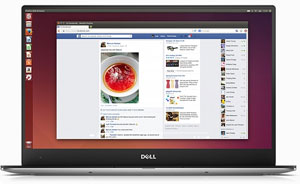Kali Linux is quickly getting traction as de facto penetration testing suite/OS for professionals and hobbyists alike. But obviously, it is not as popular as mainstream Linux distros like Ubuntu, Mint or Debian. That leaves most of pentesters in the dark when searching for the best laptop for Kali Linux. Up until now, Kali forums are filled with year-old suggestions of buying a Lenovo laptop that’s almost as old as you are. And I won’t lie – in some cases, you might aswell get that refurbished Lenovo. But maybe now is the time to get a something new?
Well, I took on the mission of finding the best Kali Linux laptops and it wasn’t pretty. Apparently, checking laptops one-by-one for their WiFi chipsets is not most fun way to spend my free time.
Now, I will skip the whole “do you really need Kali Linux” part and I’ll assume you have all the reasons in the world to install it and to buy a laptop for it.
Ok, let’s go straight to finding the holy grail of penetration testing – the best laptop for Kali Linux.
Requirements for the best Kali Linux laptop
How much power do you need?
To find the best laptop for penetration testing we need to define what exactly it will be used for.
For the most part, any laptop that runs Linux will work. You don’t need anything fancy when it comes to pentesting laptops. In the most basic sense, if Ubuntu can run on a laptop, Kali can run on it too.
Penetration testing
You could use a Kali Live USB with persistence or dual-boot with Windows (or other Linux distro). Most likely, you’ll also need to have a couple of virtual machines (via Oracle Virtual Box, VMware or Parallels). That only requires a basic processor and a bit extra RAM. You don’t need much for capturing, probing and listening. In that case, you might want to steer away from bulky machines and towards lighter ones if your budget allows it.
Cracking hashes
Using GPU cracking is an entirely another subject. In that case, you’ll need a laptop resembling a gaming rig. Then powerful CPU and GPU will come a long way but even then there some serious issues with GPU cracking on a laptop.

